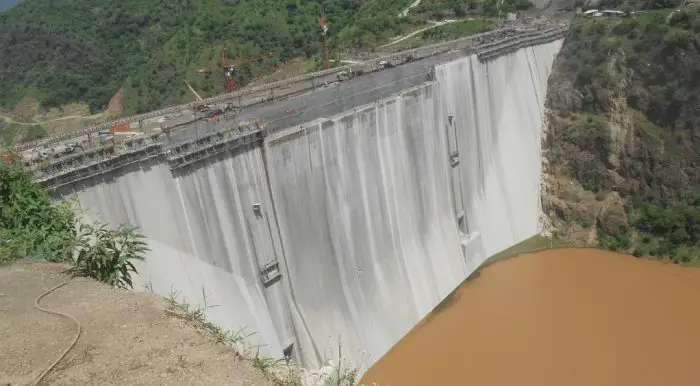Ethiopia’s Ministry of Water, Irrigation and Electricity (MWIE) disclosed the construction progress of Genale Dawa III hydro-electric power project to being at 91%. The power is expected to generate 254 Megawatts after its completion.
According to the Minister for Water, Irrigation and Electricity, Dr. Eng. Seleshi Bekele, installation of electromechanical works that will enable the plant to generate hydropower are in progress. Filling the dam, with a capacity of 2.57 billion cubic meters of water, is also set to commence soon.
Also read:Egypt skeptical over plans to construct new Dam in Ethiopia
Deputy Manager of the Project, Belachew Kasa, explained construction of the power house, water outlet and tunnels, drilling of caves and 12.4 kilometers of transmission were completed. The project adopted the use of earth drilling machine, abandoning its previous practice of using dynamites.
The project has also provided employment for the locals as 70% of the professional staffs hired by the project were Ethiopians. The project also was a proof of the university-industry linkage where many students got professional site skills and transfer of technology.
Genale-Dawa III dam will regulate the US$13.7m Genale-Dewa V project downstream river flows to ensure reliable power production by the river.
The projects are expected to be completed within a period of 4 years, with evaluation of pre-qualified construction companies and selection of contractors near conclusion.
The Genale-Dawa River, which connects Ethiopia and Somalia with approximately half of its total length flowing through the rocky Bale, has the third largest catchment area, 74kmsq, with an annual discharge of 6,000,000,000m3.
The river has an estimated hydro-power generation capacity of 9,300GWh per annum and is expected to contribute about 5.8% of the country’s total estimated potential.
A 400kv, 75km long, transmission line that had been included in the project design will extend from the Genale-Dawa VI to the nearest substation at Genale-Dawa III where the generated power will be connected to the national grid.

